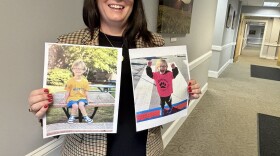Every two years New Hampshire lawmakers are given the task of producing a budget for the state. The aim is to craft one that best serves Granite State residents, spends within the state’s means as well as adheres to the party lines of those in the majority.
This session with a Democratic Governor and Republican controlled House and Senate – the budget process will fluctuate quite a bit before it is signed into law by June 30th.
Let’s back up: Governor Maggie Hassan proposed a budget in February that would increase spending by 6.2 percent over the current biennium, adding millions of dollars to the Department of Health and Human Services, around $6 million dollars for substance abuse treatment programs per year and a nearly $10 million bump in University funding.
On the revenue side, she proposed a cigarette tax and a 35 percent increase in the state’s car registration fee – all which were removed from the House budget.
The $11.2 billion House budget, which passed the floor in April, made a more modest spending increase with zero revenue hikes, while spending an estimated $71 million less in general funds than the current biennial. Most departments, however, were either given a slight increase or received level funding – meaning most cuts were made to the Governor’s proposal and not to the state’s current spending plan.
Except for education aid, that was actually cut across the board, but varied by school district.
Elderly services, however, also took a hit with the elimination of the program ServiceLink, which connects senior citizens to services, as well as a deep cut to the Meals on Wheels program, which provides meals for seniors.
Another big change between the two proposals is that Hassan’s budget put more funds into the estimated $9.3 million rainy day fund meanwhile the House depleted it in its plan.
But regardless of these two proposals, the numbers will change after the Senate has its turn with the budget, where leadership has stressed that restoring the rainy day fund and lowering business taxes are its top priorities.








